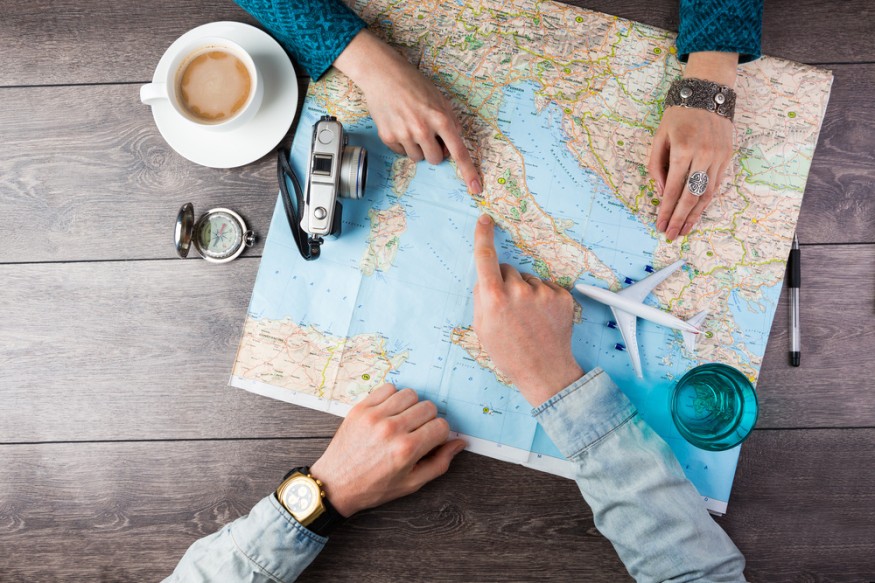
When people think about global warming, they tend to gloss over the damage their holiday and international travel can do and try to pin the blame on large corporations and governments that 'should be doing more to protect the planet.'
Of course, most of these people still use these large corporations they blame for causing irreparable damage to our environment even though there are plenty of global organisations, such as Clarksons, global shipping company, that have already implemented more planet-friendly measures to ensure a reduced global impact.
However, we are all responsible for damage done to Earth and should all stand up and do more to reduce our unhealthy lifestyles that contribute to faster melting icecaps and damage to the o-zone layer. Particularly those living in the western world that have a higher maintenance cost per day than those living in developing countries that use less and lower cost resources day to day.
This includes; using less water by having shorter showers, preventing food loss by planning meals carefully and sharing leftover resources with those less fortunate, having one less child (the largest contributing factor to global warming and carbon levels) and thinking carefully about the repercussions our actions have.
What Damage Does Our Travel Do?
That last point, "thinking carefully about the repercussions our actions have" is one that we can apply mainly to our preferred methods of travel. Most first-world homes tend to have 1.5 cars to a household and while efforts are being made with hybrid vehicles and self-driving cars, this is still a lot of pollution produced daily. Switching to a hybrid car, choosing to carpool or swapping your car for public transport can all translate to living a eco-friendlier life and will ensure the amount of pollution you contribute to each day is reduced.
This also applies to your holiday and which way you choose to travel. For instance, taking a flight from London to Paris and back produces up to 244Kg of Co2 emissions and takes on average, 3 and a half hours. When compared to train travel, which takes only 2- and three-quarter hours and only produces a 22Kg of Co2 emissions, an astounding 91% less - it's not difficult to see which the less harmful way is to travel.
Sadly, it's not always practical to get a train for travel, especially when travelling long distances, from New York to London or London to China for example. Luckily, with ample and constantly improving connectivity around the world, it's less imperative that people travel to make meetings or business deals. Saving on the hassle of travelling halfway across the world by swapping an in-person meeting to one organised online through social media platforms or conference facilities. Not only is this easier and eco-friendlier but it can save multiple parties on costs and time too, making it more efficient for all involved.
Is Sea-Travel an Effective Alternative?

Not many people consider sea-travel a viable option for travelling long distances - at least until Greta Thunberg stepped off a sailboat into New York after travelling for two weeks across the Atlantic. In a bid to follow her own eco-friendly practices, Greta opted to travel by boat rather than plane when invited to attend the UN Summit on zero emissions, which took place in New York in the summer of 2019.
While nice in theory, not many holiday makers can afford the time to travel two weeks across the Atlantic and it'll be some time before a regular Europe to America sea-travel route is a viable option. Luckily, sea travel is more than an alternative method of travel for holiday goers but is a very practical method of shipping for goods and cargo and is a much greener alternative when compared to cargo-shipping via air.
Currently, almost 90% of all shipped cargo is sent via the seas which translates to a huge number of ships sailing the world's oceans. Each of these ships produces pollution that affects both air and sea but luckily many of the world's leading shipping companies are taking steps to reduce the effect their ships have on the environment. Including the fitting of equipment that uses more eco-friendly fuels and 'slow-steaming' the practice of travelling below top speed in a bit to use less resources over the entire journey.
With the next year's holiday season soon to be in the booking spotlight, why don't you consider travelling in a eco-friendlier method this summer? Or better yet, swapping your long-distance holiday for the convenience of a staycation, sample the delights of your local attractions and get to know your home-country more intimately.
© 2026 NatureWorldNews.com All rights reserved. Do not reproduce without permission.





